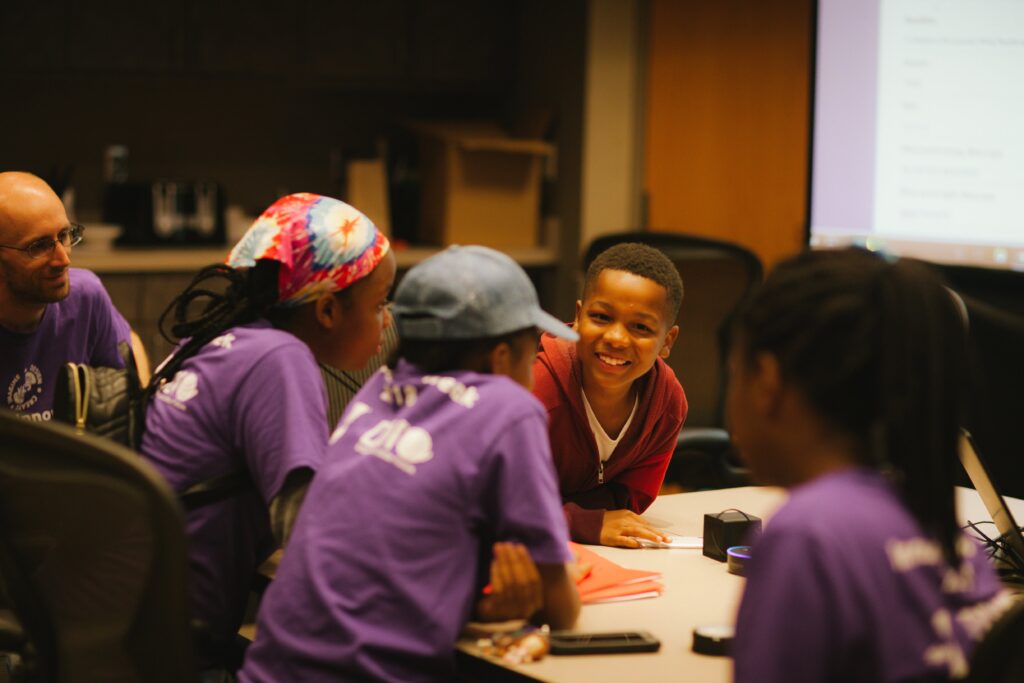Among the many education trends to have emerged in recent years, few have seen the amount of attention and expectation as Personalized Learning.
According to the Glossary of Education Reform, Personalized Learning refers to “a diverse variety of educational programs, learning experiences, instructional approaches, and academic-support strategies that are intended to address the distinct learning needs, interests, aspirations, or cultural backgrounds of individual students.”
Technology, while not essential to personalization, is an integral part to many of the more well publicized approaches to personalized learning.
Advocates point to Personalized Learning’s potential to help every student prepare for a demanding future. Other observers caution that high-tech, hyper-individualized approaches to Personalized Learning sidestep the role of the educator and threatens to widen opportunity gaps.
Emerging alongside the rise in learning software has been a renewed focus on the interpersonal foundations of learning. In particular, the role of mentors, tutors, and other education-adjacent paraprofessionals has been shown to increase student motivation and esteem. As the saying goes: “You can’t be what you can’t see.”
Also rising to the surface is an interest among educators (and students) in learning that is grounded in the specific cultural and community context in which learners live. Often called Culturally Responsive or Culturally Sustaining Education, instructional approaches that connect what students are learning to their lived experience have been shown to support across-the-board improvement. Students get and stay engaged because what they’re learning is more real and relevant.
With all this swirling, a new project is getting underway to see what’s possible when we embrace the promising parts of these human-driven approaches and technology-enhanced solutions to personalization.
Personalized Learning Squared (PL²) is a collaborative project of the LearnLab at Carnegie Mellon University, a national hub for research and development of ed tech, artificial intelligence, and learning science, and the Center for Urban Education at the University of Pittsburgh, a nationally recognized center of excellence for research and service in urban education.
LearnLab and CUE are piloting an approach to personalized learning that helps tutors practice culturally responsive teaching that is informed by their students’ progress in learning software.
“When we are at events or in conversations or reading reports about personalized learning, we typically see things falling into two buckets: on the one side edtech products and cognitive learning systems, made possible by 1:1 device situations,” said Anne Sekula, former director of Remake Learning and a lead consultant on the project. “And then on the other side you have a focus on the relational aspects of personalized learning: teachers and adults really knowing their students better and helping to motivate them in really targeted ways, powering student engagement by getting to know them and tapping into their interests.”
PL² combines interpersonal mentoring and tutoring with artificial intelligence (AI) learning software to create a dynamic learning experience that is uniquely tailored to the strengths and needs of students who otherwise would be under-served.
“These are two sets of tools and with this project, we’re trying to bring them together,” said Sekula. “The hope is that we’ll enable caregivers, mentors, teachers to take advantage of both the ed-tech solution and the positive engagement practices, and use both sets of tools to serve students and address opportunity gaps and achievement.”
Together, a team of researchers, developers, and practitioners are working with educators and mentors at four school sites throughout greater Pittsburgh.
- At Shaler Area School District, parents are using PL² to support their children’s learning at home after school and in the summer and supporting tutors during the school day.
- At Elizabeth Forward School District, administrators are using PL² to identify the most effective teacher practices and scale them across the school district.
- At Propel Schools, paraprofessional instructional specialists are using PL² to build stronger relationships with students and to identify motivational factors that work for individuals.
- At Pittsburgh Public Schools, PL² is supported by culturally responsive mentors using an asset-based, equity-focused curriculum to supplement math instruction through the Center for Urban Education’s Ready to Learn program.
“This isn’t how R&D projects typically unfold. We’re involving so many partners,” said Sekula, whose role includes liaising with each of the schools involved and coordinating their participation in piloting the PL^2 approach. “When a project is underway, it is usually very focused on a research question and its working with sites as data providers, and that’s it. What we’re doing here connects research and development to broader problems of practice.”
In addition to building on the cross-sector collaboration that’s been at key feature in Remake Learning’s network-based approach to innovation, the inclusive nature of the project has a practical result too, according to Sekula: “We’re hoping this results is a learning resource that is flexible for many different settings and contexts.”
By piloting the project in such widely varying school sites, the PL² hopes to learn how to best combine mentorship and software to help address opportunity gaps in learning. “It’s really in keeping with the ethos of Remake Learning,” Sekula said.
Remake Learning will be following along closely and reporting on progress throughout the 2019-2020 school year, starting with in depth interviews with project leaders at Learn Lab and CUE.
PL² and Remake Learning’s coverage of the project are supported by a grant from the Chan Zuckerberg Initiative.
